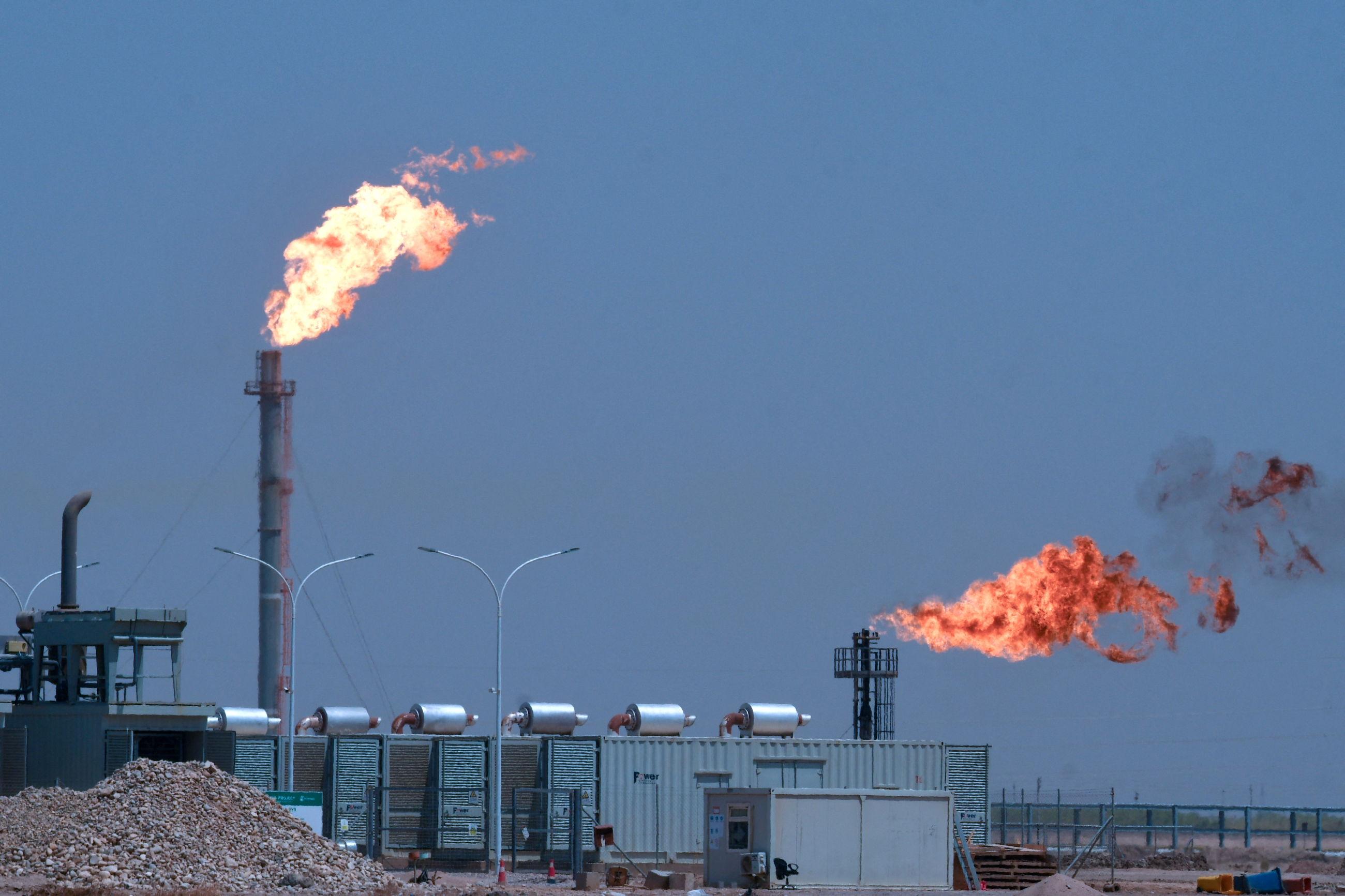Top US diplomat warns court ruling on oil risks deepening crisis in Iraq

The US has urged Baghdad not to implement a court ruling forcing its semi-autonomous Kurdistan region to hand over oil extracted from its territories to federal authorities, warning it risks "a widening kind of economic crisis" in Iraq.
“Washington is quite concerned - that rushing forward and implementing this decision risks driving US firms out of Iraq, other firms out of Iraq,” Barbara Leaf, the State Department's top Middle East diplomat, told reporters on Wednesday.
"[That] would be a terrible vote of no confidence in the business environment in Iraq and, frankly, could produce wider economic repercussions well beyond the Kurdish region of Iraq," she added.
Leaf said she shared US concerns with leaders in Baghdad and Erbil, the capital of the Kurdish region, officially recognised as an autonomous region of Iraq since 2005, that following through on the court ruling would exacerbate the country’s economic woes at a time when it is already dealing with a political crisis.
The Kurdistan Regional Government (KRG) has for decades been developing its oil and gas resources independently of the federal Iraqi government, passing its own oil law in 2007 to administer control of resources in its territory.
In February, Iraq's federal court ruled that the KRG’s oil and gas law was unconstitutional and demanded that Kurdish authorities hand over their crude products.
While Leaf said the US took no legal position on the Iraqi court ruling, “pushing forward right now in the midst of an ongoing crisis over government formation simply would risk a widening kind of economic crisis, and that is the last thing that the Iraqi public needs".
Contracts invalid
The ruling declared all KRG oil contracts invalid, including agreements on exploration, extraction, export and sales. The row over oil sales escalated this summer after a Baghdad commercial court annulled contracts between the Kurdish government and foreign energy companies.
Officials in the KRG have slammed the decision and accused Baghdad of playing politics over oil sales. The Kurdistan Democratic Party (KDP), the largest political party in Iraqi Kurdistan, is allied with Shia leader Muqtada al-Sadr.
Iraq has been locked in a political crisis since Sadr emerged as the biggest winner in parliamentary elections last October.
Last month, the Green Zone in Baghdad was convulsed by violence as the cleric's supporters squared off against Iran-backed militias.
Besides irking Kurdish officials, the ruling has also unnerved energy majors and drawn the attention of US lawmakers.
In a letter sent to US Secretary of State Antony Blinken in August, senators James Risch and Bob Menendez, the ranking member and chairman of the Senate Foreign Relations Committee, said “certain US companies” were being targeted by Baghdad’s application of the law.
“We urgently ask the administration to engage the KRG and the Iraqi government at the highest levels to allow for continued energy work in the KRI [Kurdistan Region of Iraq], which is integral to Iraq’s stability and prosperity, and to furthering Iraq’s energy independence,” the lawmakers wrote.
Third-party negotiations
Leaf asked leaders in Erbil and Baghdad to enter into third-party negotiations or “some other such venue” to mediate the dispute, which she said could occur simultaneously with talks to form a government.
The diplomat said the end result of talks should be a new hydrocarbons law which "everyone agrees is long overdue and quite necessary".
The row over oil sales comes amid rising energy prices that have been exacerbated by Russia’s invasion of Ukraine.
Iraq is the second largest producer in the Organisation of the Petroleum Exporting Countries (Opec). It exports an average of 3.3m barrels of crude oil per day (BPD), while production in Kurdistan amounts to just over 450,000 BPD.
The country uses revenue from its oil reserves to fund 90 percent of the federal government’s budget.
Middle East Eye delivers independent and unrivalled coverage and analysis of the Middle East, North Africa and beyond. To learn more about republishing this content and the associated fees, please fill out this form. More about MEE can be found here.






